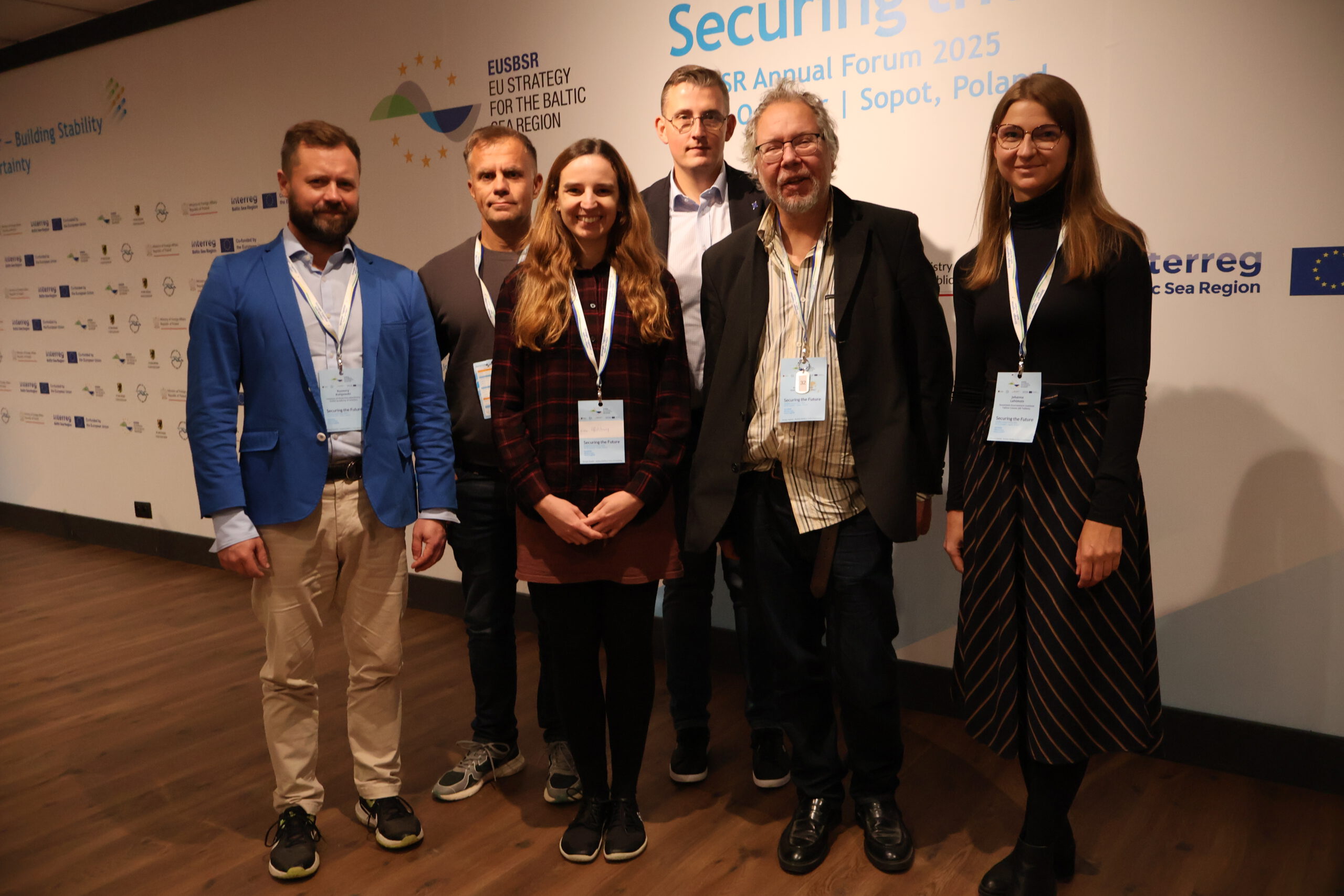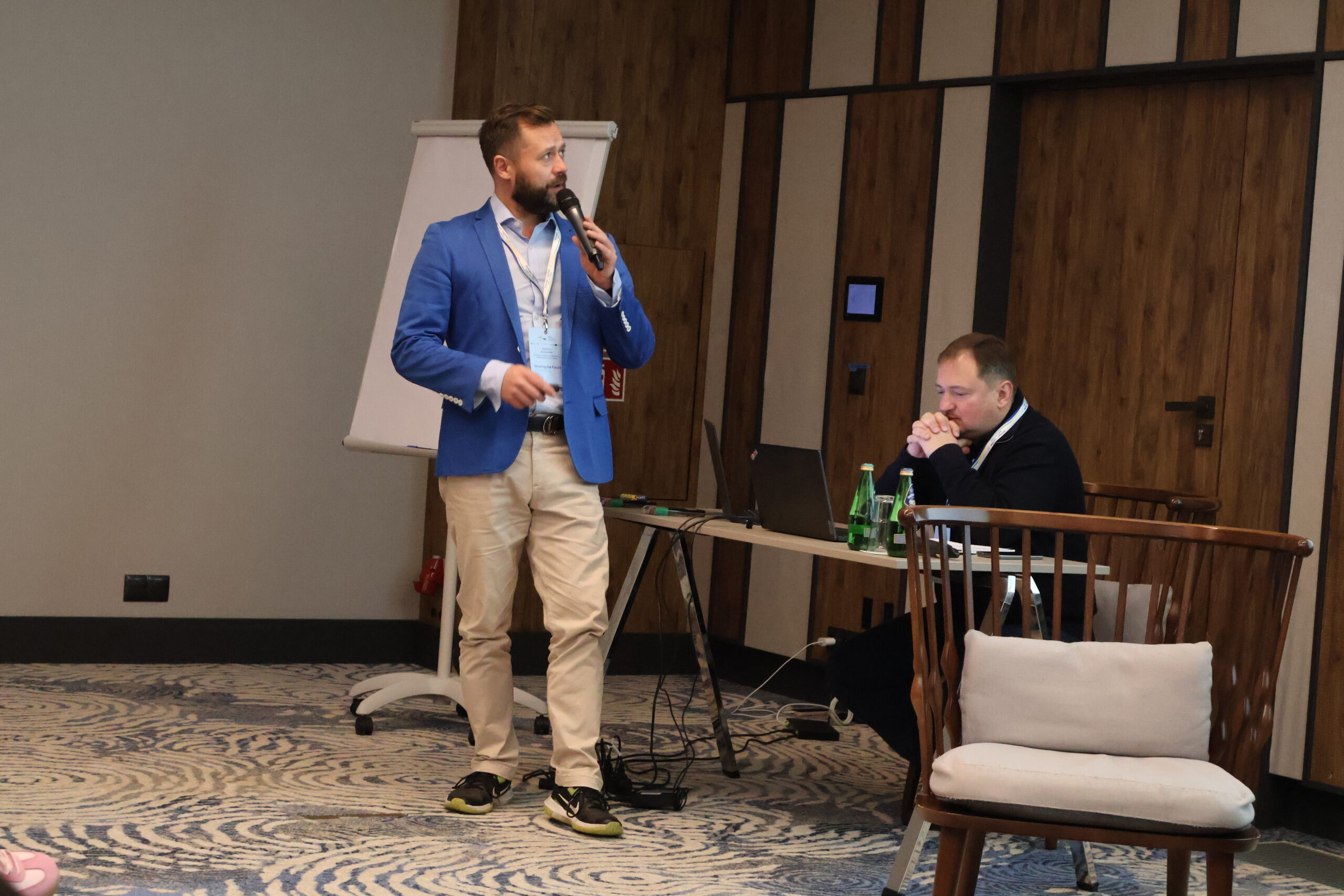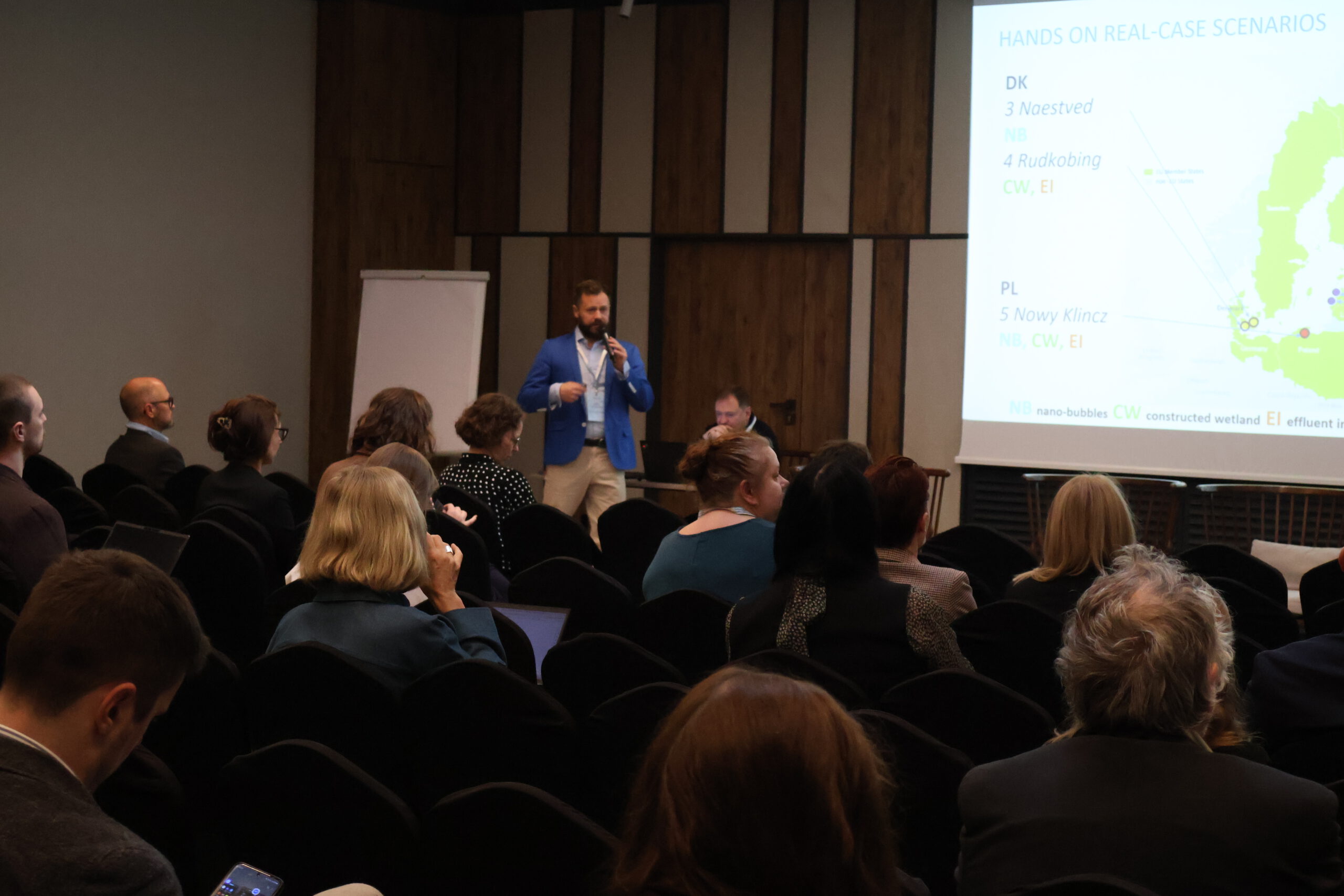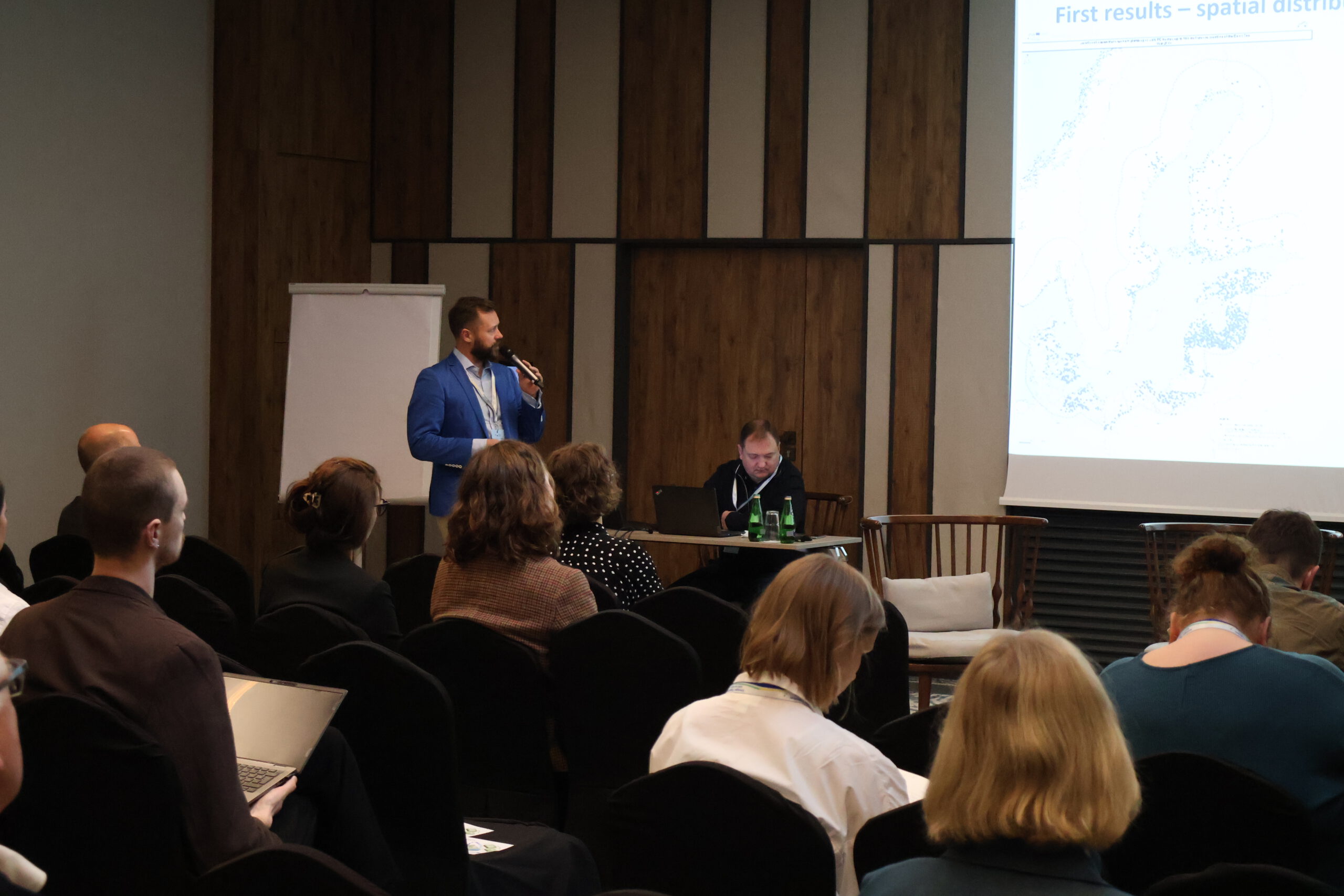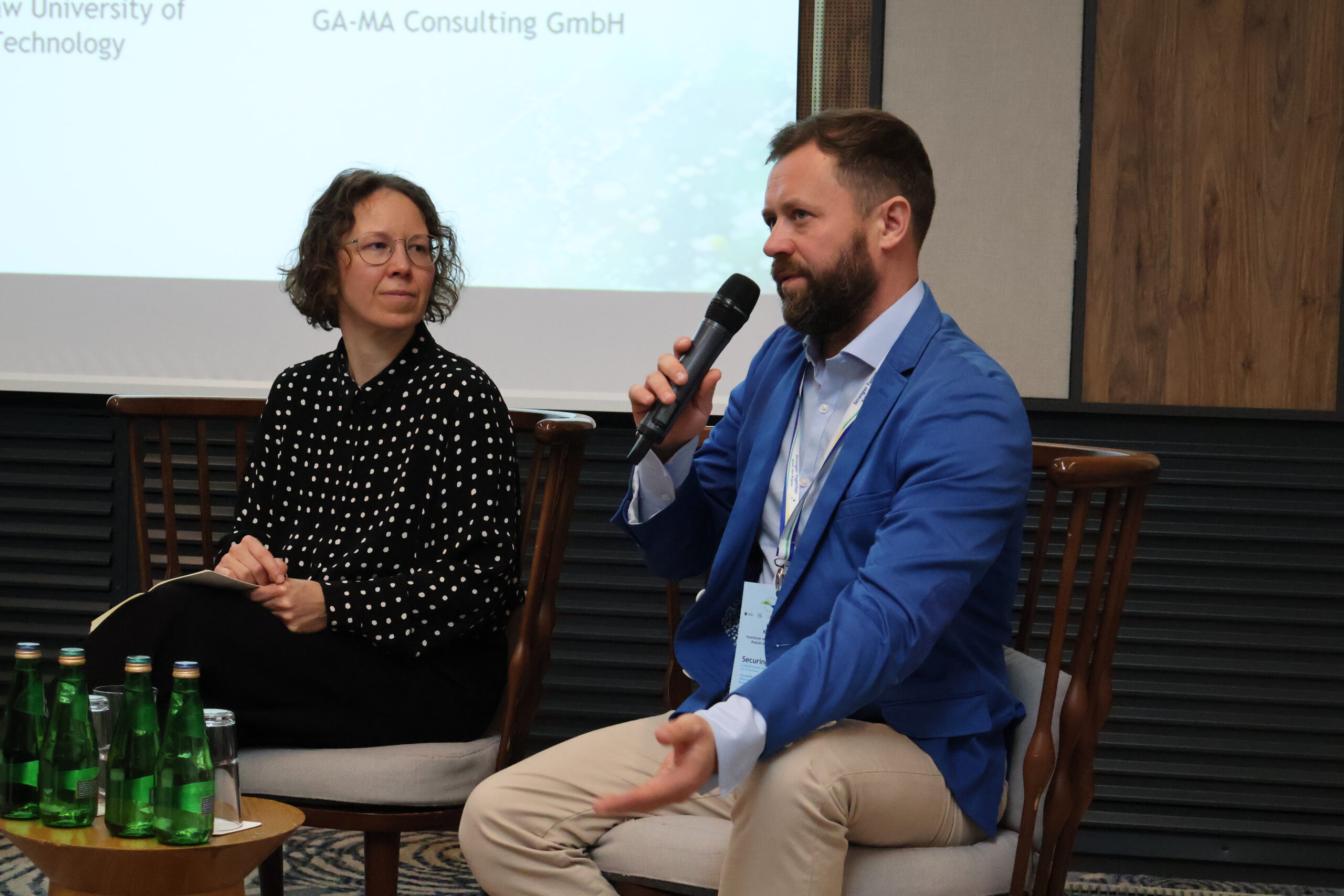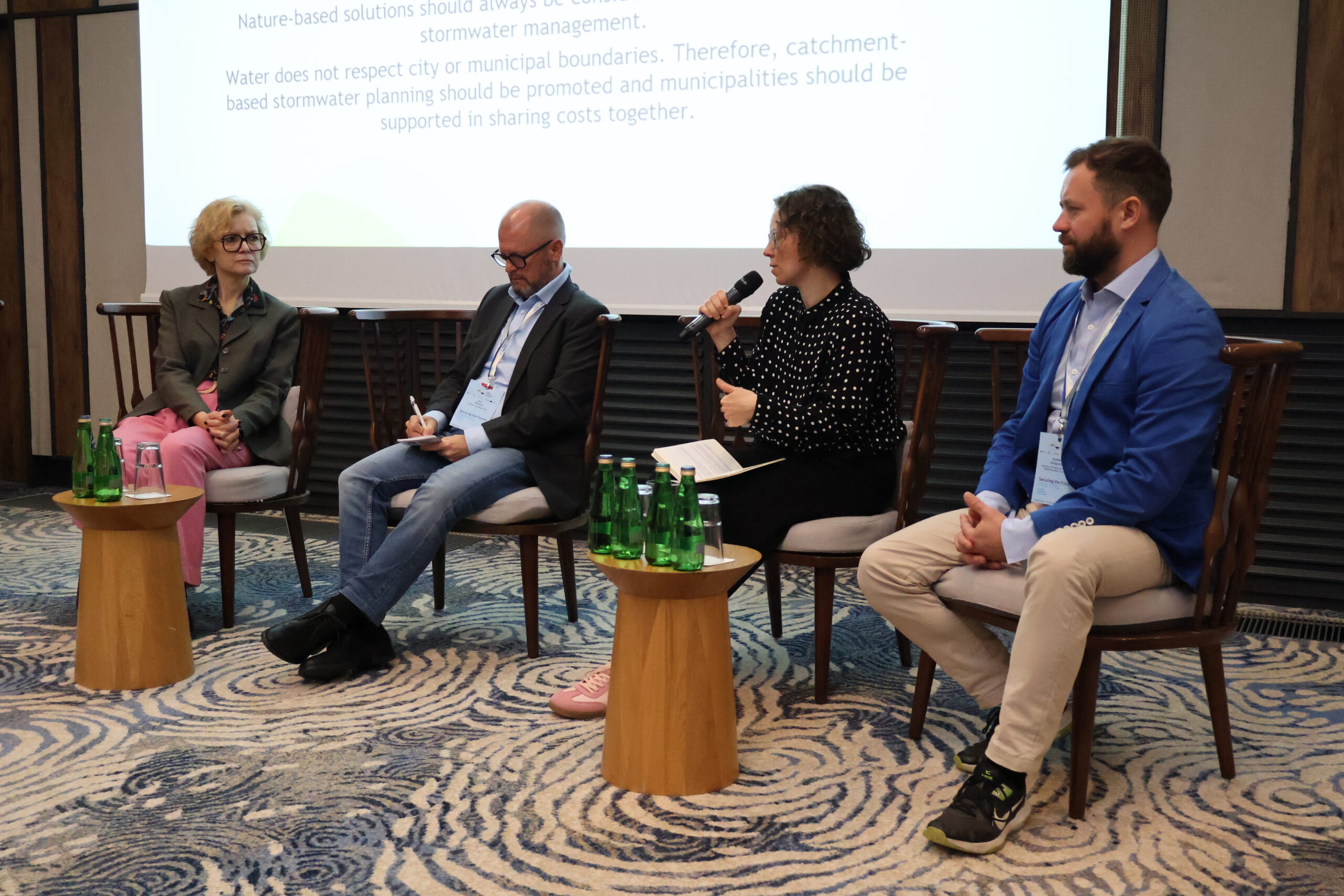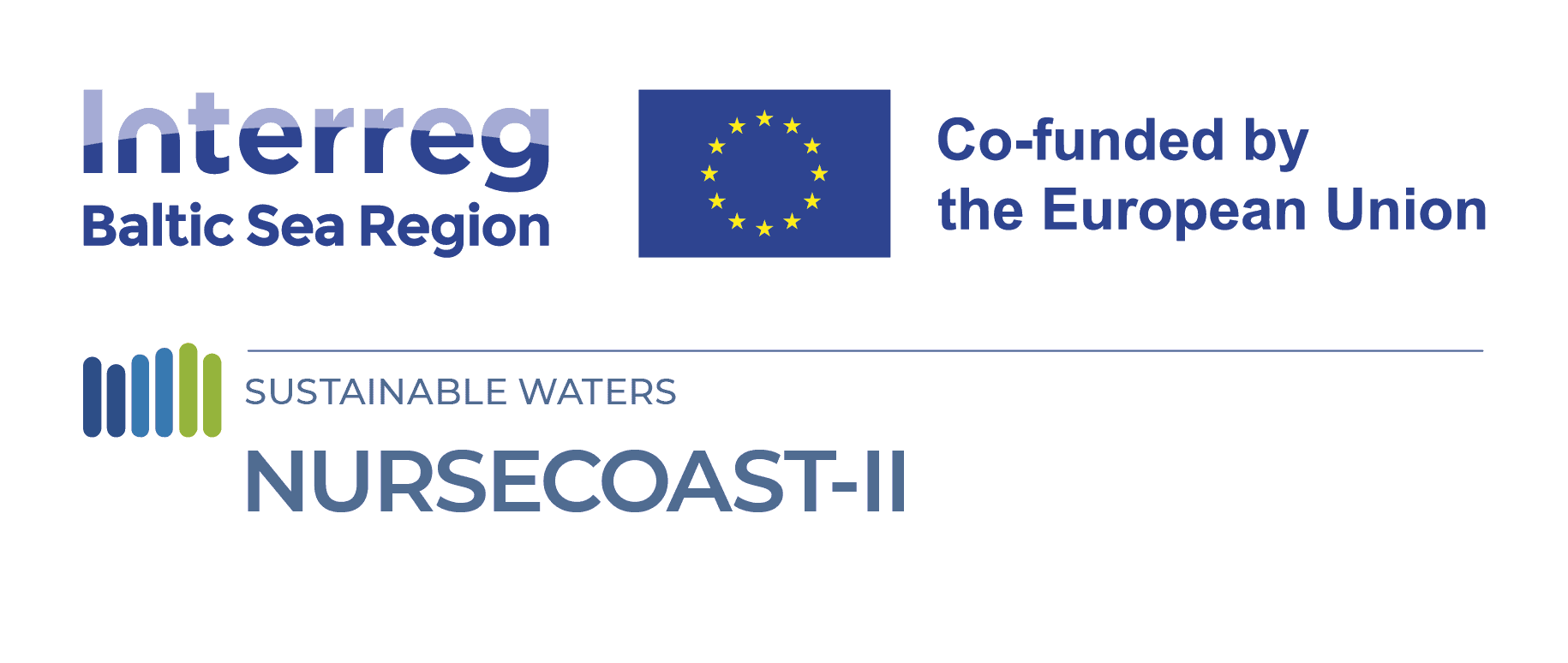
NURSECOAST-II contributing to the strategic discussions in the Baltic Sea region
04 November 2025
The Forum provided an inspiring space to look beyond national borders and think collectively about how to build a resilient and sustainable future for the region. For NURSECOAST-II, it was a great opportunity to be part of these forward-looking conversations, sharing experiences from our work and highlight how local initiatives can play a big role in shaping long-term regional stability. And no question- wastewater treatment plants are part of critical infrastructure for communities, thus also a relevant part of the discussion of resilience and crises.
Water recycling and the smart use of wastewater are key for resilient Baltic Sea region
The NURSECOAST-II project took part in a session organised by EU Policy Area Nutri Coordinators, in cooperation with the Euroregion Baltic Water Core Group, the Association of Polish Communes Euroregion Baltic, and fellow Interreg Baltic Sea Region WaterMan, ReNutriWater, and CityBlues.
The panel explored the impacts of climate change-driven water stress, touching on tourism, urban management, and policy-making. Panellists emphasized that water recycling and the smart use of wastewater are becoming increasingly important as the region faces both floods and droughts.
In times when we either have too much or too little water, it makes sense to reuse what we already have – treated wastewater and rainwater. Instead of relying solely on groundwater or drinking water, reusing treated water for less demanding purposes (such as street cleaning or park irrigation) can significantly reduce pressure on valuable freshwater sources.
The technology and policy frameworks for this already exist, though legal and mental barriers remain. However, Southern Europe provides excellent examples of how municipal wastewater can be safely reused for irrigation.
Nature-based solutions also offer additional benefits – from supporting biodiversity and cleaner urban environments to mitigating heatwaves and improving people’s wellbeing. What we need now is not new technology, but greater awareness, local engagement, and supportive regulations to make water reuse a normal part of sustainable urban management.
Joint insights from NURSECOAST-II and partner projects
Across the four participating projects — CityBlues, ReNutriWater, WaterMan, and NURSECOAST-II — a shared message emerged: strengthening the resilience of water systems in the Baltic Sea region requires smarter, circular, and collaborative approaches to managing water.
From a climate perspective, the projects collectively showed that both droughts and floods are becoming more common, making it essential to view water as a finite and shared resource. Smarter water use, recovery, and recycling can help buffer local communities against these extremes.
The projects´ key insights pointed to a clear direction: the Baltic Sea region already has the technologies and experience it needs — the next step is mainstreaming water reuse and nature-based solutions through policy, awareness, and coordinated regional action.
NURSECOAST-II project key takeaways
Representing NURSECOAST-II, Ksawery Kuligowski, project lead from Institute of Fluid-Flow Machinery, Polish Academy of Sciences (IMP PAN) shared key insights:
- From our pilots we see that it’s possible to mitigate seasonality-related wastewater flow issues in tourist areas using nature-based solutions or plug-in technologies (e.g. nanobubbles).
- We need mechanisms to assess population fluctuations between permanent residents and visitors in tourist destinations.
- Improved data accessibility and collection are essential to analyse the spatial distribution and efficiency of small wastewater treatment plants.
